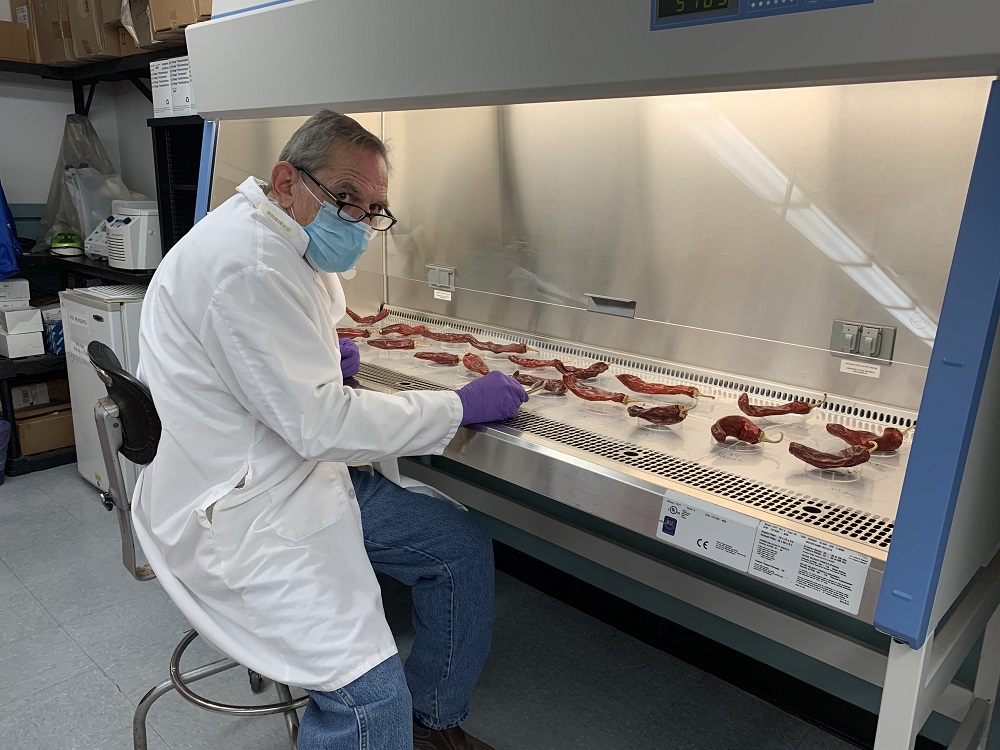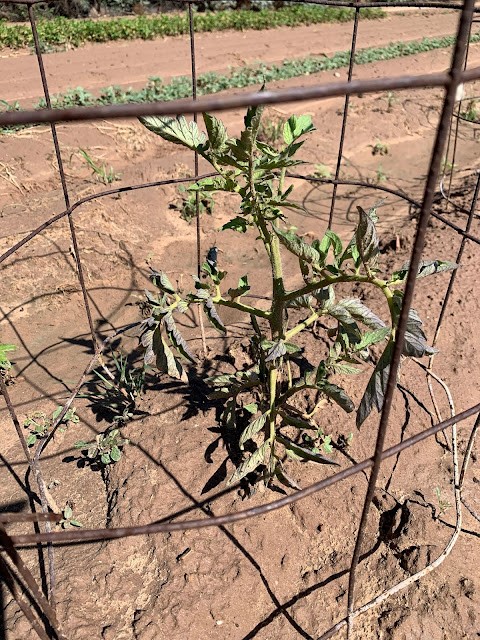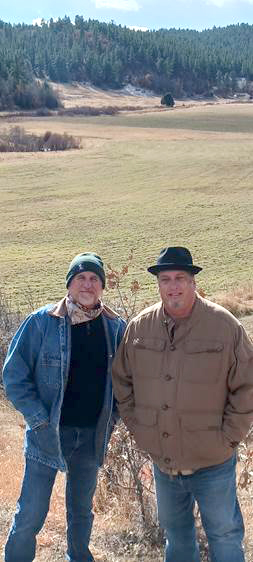FOR IMMEDIATE RELEASE:
Contact: Kristie Garcia
Director of Public Affairs, New Mexico Department of Agriculture
krgarcia@nmda.nmsu.edu
Office: 575-646-2804
Cell: 575-339-5011
Dec. 20, 2022
New Mexico Department of Agriculture awards over $560,000 in funding for seven Specialty Crop Block Grant Program projects
LAS CRUCES – The New Mexico Department of Agriculture (NMDA) announced on Tuesday that $563,843 in funding has been awarded to seven specialty crop projects for fiscal year 2022-2023. The United States Department of Agriculture’s Agricultural Marketing Service awards the Specialty Crop Block Grant Program (SCBGP) funding to NMDA, and NMDA administers the funding, which is awarded to projects that enhance the competitiveness of specialty crops in the state and support specialty crop growers through marketing, education and research.
“With New Mexico being the top chile pepper-producing state in the nation, we look forward to the projects furthering important crop-related research,” said New Mexico Agriculture Secretary Jeff Witte. “Spearheaded by our state’s land-grant university, farmers’ marketing association and nursery and greenhouse association, projects will also address and enhance the importance of food safety, value-chain coordination and education in support of specialty crops.”
One of the funded research projects will focus on minimizing the risk of contaminating chile products. The New Mexico State University (NMSU) Food Safety Laboratory plans to work with the New Mexico chile industry to minimize the risk of contamination by pathogenic microorganisms and ensure the safety and quality of chile during production and during the manufacture of value-added products. Titled, “Training, Testing and Technical Support for Improved Safety and Quality of New Mexico Chile Products,” this project will ultimately benefit chile, onion and pecan growers and processors, as well those who manufacture foods, such as frozen and canned products.

Willis Fedio, NMSU Food Safety Laboratory Director and Associate Professor in Extension Family and Consumer Sciences, said the funding for this project will enable his team to complete the laboratory’s accreditation procedure and further the NMSU Food Safety Laboratory’s efforts to start a chile pepper safety resource center.
“The NMSU Food Safety Laboratory has established procedures that can save time and money for New Mexico chile producers and processors,” said Fedio. “At present, however, the laboratory is unable to provide routine testing services to most of the chile industry, because the lab is not ISO (International Organization for Standardization) 17025 accredited. Although our laboratory procedures and standard operating procedures are sound, we need to complete the ISO 17025 accreditation process and include methods we developed for chile peppers in our scope of accreditation to better serve the chile industry.”
Another research-related project funded – “Protecting New Mexico Chile and Tomato Crops from Disease while Generating Electricity through Agrivoltaics” – involves evaluating the degree of protection against curly top virus (CTV) infection provided to chile and tomato plants grown under solar panel shading. Agrivoltaics involves the combination of solar panels with agricultural production. Through field experiments on chile and tomato plants grown conventionally and under solar panels, researchers at NMSU Agricultural Science Centers in Las Cruces and Los Lunas will compare CTV disease infection rates, as well as plant vigor and yield to assess the impact of solar panel shade on fruit production. One of the project’s co-investigators is from the NMSU College of Engineering. Electrical output will also be gauged to estimate potential economic benefits to producers benefiting from less CTV crop loss and electricity generation.

Marisa Thompson, NMSU Extension Urban Horticulture Specialist, said in addition to being excited about researching agrivoltaic opportunities in New Mexico, NMSU researchers are eager to further investigate the effects of shade on CTV infection rates in chile and tomato production.
“Whether they’re farming acres of chiles or just a few plants in the backyard for fun, growers are all too familiar with this virus, which is spread by the beet leafhopper insect vector,” said Thompson. “Curly top is a cute name for a pathogen that is responsible for serious crop losses each season. We are also working to improve agricultural literacy among the general public. Chiles and tomatoes are extremely popular, locally-produced foods that are familiar to a wide audience, not just growers. And if those two yummy headliners don’t grab a person’s attention, maybe solar power integration will.”
A non-research-related project funded is the New Mexico Farmers’ Marketing Association project, “Expanding Statewide Value Chain Coordination to Grow Specialty Crop Sales and Related Infrastructure.” In this “Phase 2” project, the association will advance the foundational statewide value chain coordination work that began in 2018 to increase sales of, and access to, specialty crops produced by small and midscale growers.

Denise Miller, New Mexico Farmers’ Marketing Association Executive Director, said the new grant allows the association’s value chain coordinator to provide on-farm technical assistance, food safety training and marketing assistance to producers who need help accessing local food markets.
“The New Mexico Farmers’ Marketing Association is excited to continue advancing specialty crop sales across the state through its value chain work that supports small and midscale growers, many of whom are categorized by USDA as socially disadvantaged from native American and traditional Hispanic communities,” said Miller. “The project will also pilot forward contracting with producers and support local food hub participation in a new shared data measurement system that will provide important specialty crop data to farmers and buyers alike.
“Beneficiaries of this work – in addition to farmers themselves – include the communities who are purchasing an increased volume of New Mexico specialty crops: New Mexico schools, pre-schools, senior centers, health clinic patients, food banks and food pantries. Value chain coordination is the common thread that binds these diverse and growing specialty crop market programs.”
To learn more about the USDA Specialty Crop Block Grant Program, visit the USDA Agricultural Marketing Services website. For more information about the Specialty Crop Block Grant Program in New Mexico, visit ElevateNMAg.com. Questions? Email specialtycrops@nmda.nmsu.edu.
###
Find us at:
Please bookmark the new NMDA website: NMDeptAg.nmsu.edu
Facebook, Twitter and Instagram: @NMDeptAg
YouTube: NMDeptAg
LinkedIn: New Mexico Department of Agriculture
